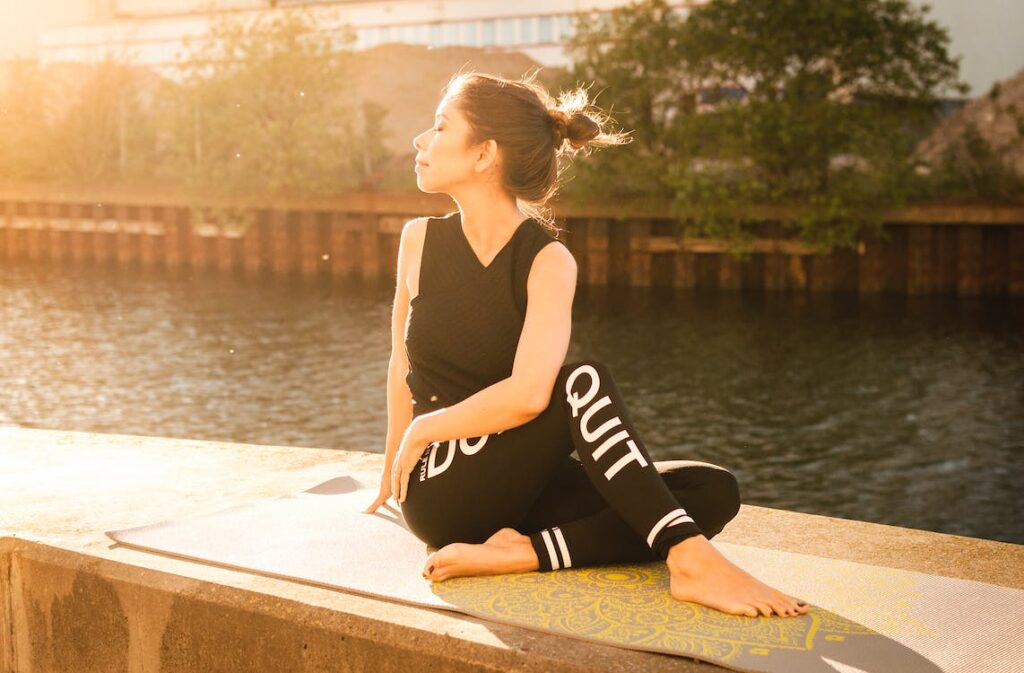
Yoga is more than just a physical exercise; it’s a holistic practice that encompasses the mind, body, and spirit. Originating in ancient India, yoga has gained popularity worldwide for its myriad of mental and physical benefits. In this comprehensive guide, we’ll explore the profound impact of daily yoga practice on mental and physical well-being.
About Daily Yoga Practice: Daily yoga practice involves performing a series of postures (asanas), breathing exercises (pranayama), and meditation techniques to promote overall health and well-being. Whether practiced in a studio or in the comfort of your own home, yoga offers a versatile and accessible way to enhance both mental and physical fitness.
Pros of Daily Yoga Practice:
- Improved Flexibility: Regular yoga practice increases flexibility by stretching and lengthening muscles and connective tissues.
- Enhanced Strength: Yoga poses require strength and stability, leading to improved muscle tone and overall strength.
- Stress Reduction: The combination of movement, breathwork, and meditation in yoga helps lower cortisol levels and promote relaxation.
- Better Posture: Yoga promotes proper alignment and body awareness, leading to improved posture and reduced risk of injury.
- Increased Mindfulness: Yoga cultivates mindfulness, allowing practitioners to live more fully in the present moment and reduce mental chatter.
Cons of Daily Yoga Practice:
- Time Commitment: Daily yoga practice requires a time commitment, which may be challenging for individuals with busy schedules.
- Physical Limitations: Some individuals may have physical limitations or injuries that make certain yoga poses difficult or inaccessible.
- Initial Discomfort: Beginners may experience discomfort or frustration as they learn new poses and adjust to the practice.
Benefits of Daily Yoga Practice:
- Stress Management: Yoga reduces stress by promoting relaxation, lowering cortisol levels, and fostering mindfulness.
- Mental Clarity: Daily yoga practice enhances mental clarity and focus, helping individuals better navigate life’s challenges.
- Emotional Well-being: Yoga releases tension stored in the body and promotes emotional balance and resilience.
- Physical Fitness: Yoga improves strength, flexibility, balance, and endurance, leading to overall physical fitness.
- Better Sleep: The relaxation and mindfulness techniques in yoga can improve sleep quality and duration.
Why You Should Practice Yoga Daily:
- Enhance Mental and Physical Health: Daily yoga practice offers a comprehensive approach to improving both mental and physical well-being.
- Reduce Stress and Anxiety: Yoga provides effective tools for managing stress and anxiety in daily life.
- Cultivate Mindfulness: The mindfulness practices in yoga help individuals cultivate present-moment awareness and inner peace.
- Improve Flexibility and Strength: Regular yoga practice improves flexibility, strength, and overall physical fitness.
- Foster Connection: Yoga fosters a sense of connection to oneself, others, and the world around us, promoting a deeper sense of purpose and belonging.
Conclusion: Daily yoga practice offers a multitude of mental and physical benefits, making it a valuable addition to any wellness routine. Whether you’re looking to reduce stress, improve flexibility, or enhance overall well-being, yoga provides a holistic approach to health and fitness. By committing to a daily practice, you can reap the numerous rewards that yoga has to offer and cultivate a healthier, happier life.
FAQ: Q: Can I practice yoga if I’m not flexible? A: Absolutely! Yoga is for everyone, regardless of age, fitness level, or flexibility. With regular practice, you’ll gradually improve flexibility and strength over time.
Q: How long should I practice yoga each day? A: Even just a few minutes of yoga each day can yield benefits. Aim for at least 15-30 minutes of practice, but feel free to adjust based on your schedule and preferences.
Q: Do I need special equipment to practice yoga? A: All you need to practice yoga is a comfortable mat and clothing that allows for freedom of movement. Props such as blocks, straps, and bolsters can be helpful but are not required.